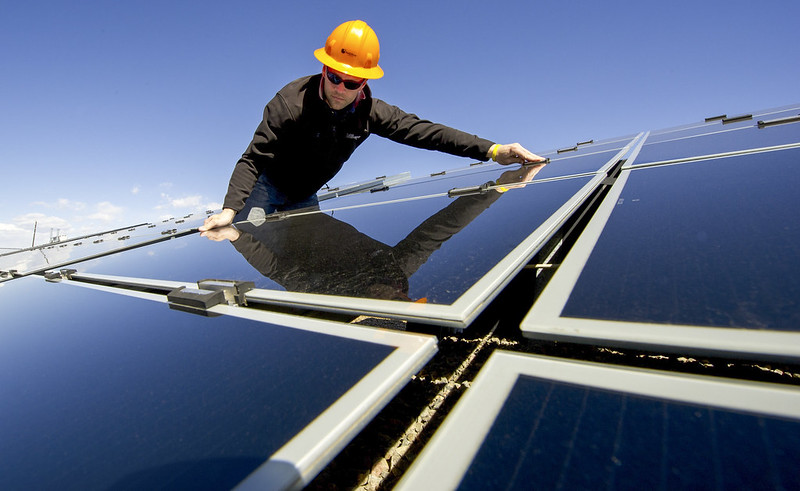UNFCCC considering multiple scenarios to get climate talks and collective action back on track

The UNFCCC Secretariat is plotting many scenarios for a mix of virtual and in-person climate change negotiations in the year ahead, in order to get the vital talks and international ambition back on track – according to UNFCCC Executive Secretary Patricia Espinosa, in a public event on 12 November 2020.
Not only are some critical areas of international agreement still outstanding. Most countries have also fallen behind on enhancing the ambition of their national climate plans, the NDCs or Nationally Determined Contributions to the Paris Agreement.
Outstanding business
The negotiations must continue and address unresolved matters, Ms Espinosa said.
“We are not on track to reach the goals of the Paris Agreement. I need to underline the fact that the lack of meetings this year and the delay… has, no doubt, had an impact on our work. Before 2020, we already knew that we were in a climate emergency. And the climate emergency has not taken a break because of the COVID crisis.”
The last round of full climate change negotiations took place at COP25 in Madrid, Spain in December 2019, but left much unfinished business. This included the crunchy issue of how Article 6, the functioning of carbon markets, would work. Furthermore, in this year when the Paris Agreement comes into force, countries need to show they are complying with the “commitments that were made [on] the pre-2020 agenda” Ms Espinosa said – reminding developed countries of their promises to support developing countries on finance, capacity building, technology transfer. At least US$100 billion per year in climate finance is due to be disbursed from developed to developing countries by now: we need to take stock of actual flows, she said.
Now, the worry is that the COVID-19 crisis has caused most countries to miss the 2020 deadline for submitting their enhanced climate plans. The Paris Agreement requires all Parties to submit an NDC every five years, beginning this year. Each successive NDC must “represent a progression beyond the Party’s then current nationally determined contribution and reflect its highest possible ambition” (Article 4.3). (Kishan Kumarsingh of Trinidad and Tobago has just published his expert opinion on the importance of this five yearly cycle and how to manoeuvre countries into an ‘Ambition Cycle’).
As of October 2020, only a handful of countries had updated their NDCs (see this presentation by UNDP on the status of NDC submissions; this UNFCCC portal carries up to date official NDC submissions by countries, listed chronologically.
Many meeting options are now on the table
Ms Espinosa discussed the two main aspects of reignited global collective climate ambition:
- 1. Countries’ domestic work to enhance their NDCs, must accelerate and get back on schedule: governments’ stimulus packages to revitalise economies in the midst of the pandemic-induced recession are an unmissable opportunity to invest in low-carbon and climate-resilient growth, Ms Espinosa said.
- 2. Countries’ collective work to keep negotiating together will continue through a combination of means: while the UNFCCC Secretariat and host of the COP26 conference, the United Kingdom, “do not have the certainty of what will happen next November,” Ms Espinosa said, “we are developing different scenarios.” She added, “we are working very hard with the UK government to build an infrastructure that would allow us to go for the most inclusive by combining virtual and in person meetings. Frankly, we have not considered the scenario that we will not meet in person in all. If that happens, we cannot delay our process.”
Two meetings of the subsidiary bodies as well as the COP in Glasgow, Scotland, UK are planned for next year. The Executive Secretary noted that the current switch from in-person meetings to online dialogues has in many cases improved the inclusivity of climate dialogues – as demonstrated in the current online Race to Zero events (where some developing country and civil society voices are participating who would not necessarily manage to attend in-person meetings due to visa and financial restrictions). That said, the UNFCCC Secretariat hopes for ‘at least some’ meetings to happen in person next year – albeit with social distancing and heightened health and safety measures in place to prevent coronavirus transmission.
“Those of us in a position of decision-making have the moral obligation to bring the [climate negotiations] process forward,” Ms Espinosa concluded. “We need to keep our minds open and keep the political will to keep the process going.”
– Reporting by Mairi Dupar, CASA
– Image: Glasgow, courtesy Marian Craig, flickr